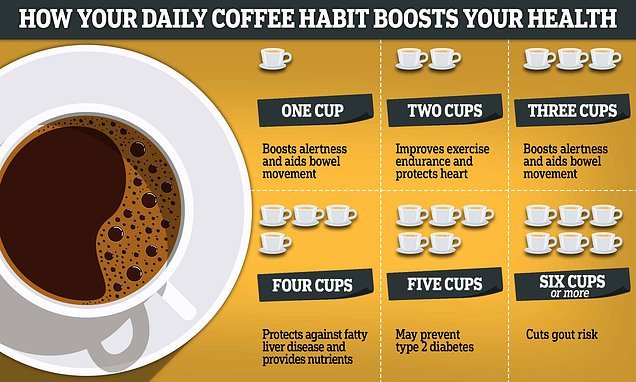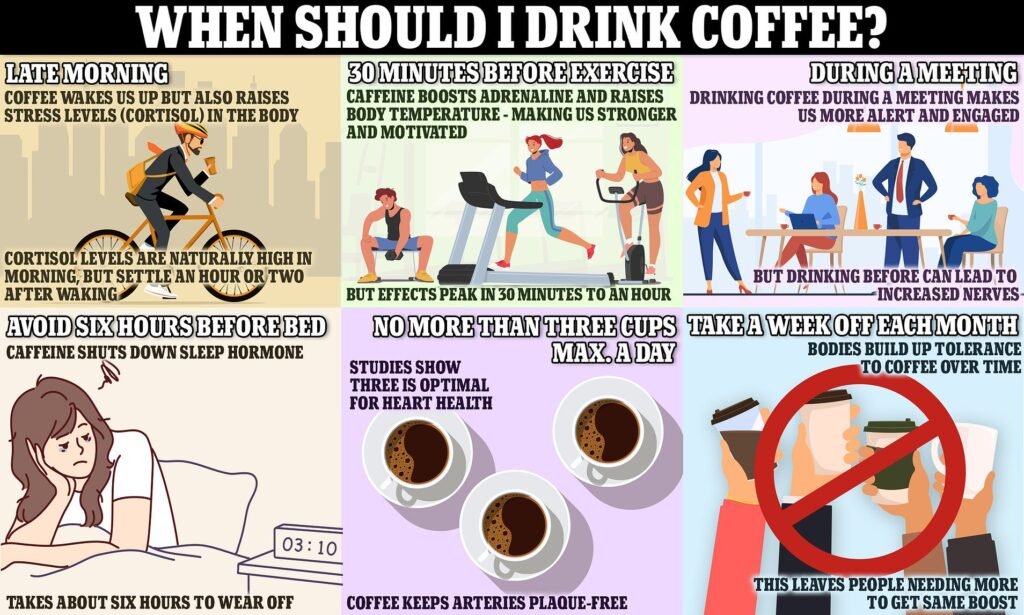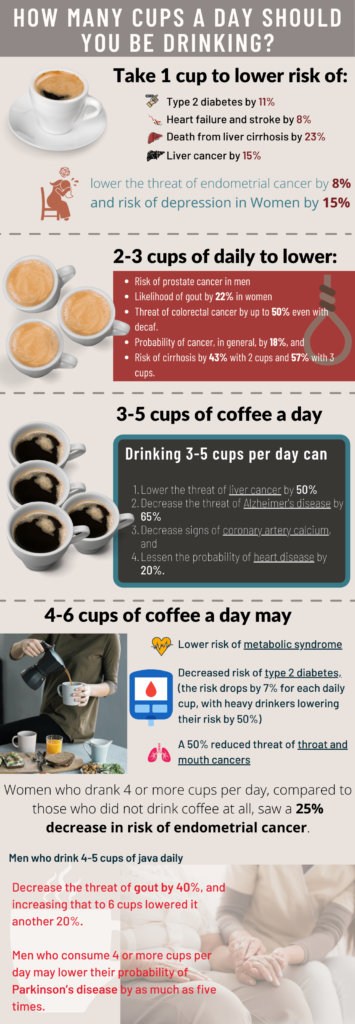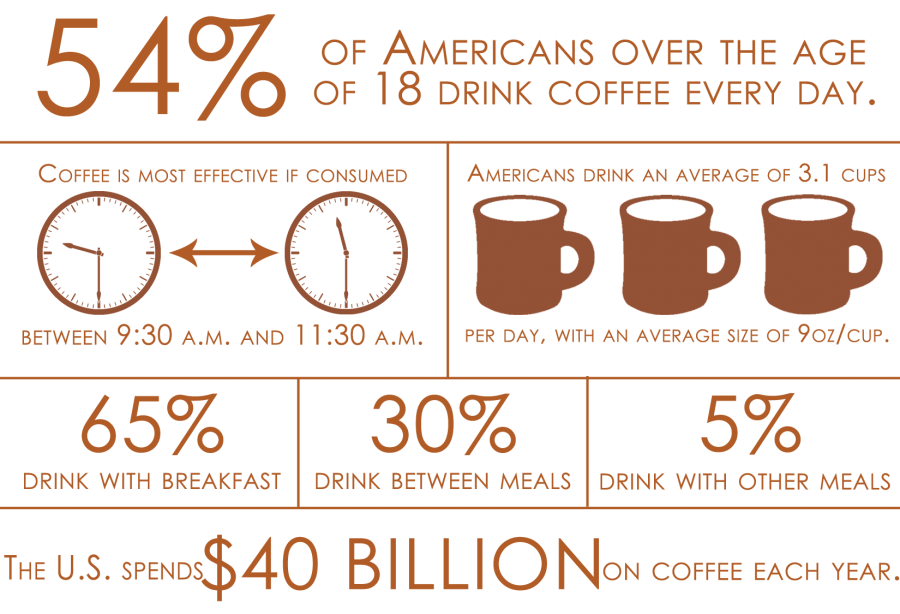How much of your day involves thinking about that next cup of coffee? If you’re among the many who love their daily (or multiple daily) java fix, you might wonder how much coffee is too much. Today, let’s talk about “How Many Times a Week Is It OK to Drink Coffee?”

Benefits of Drinking Coffee
Drinking coffee isn’t just a matter of staying awake or enjoying the taste. There are multiple benefits associated with this beloved beverage.
Boosts Mental Alertness
One of the most commonly cited benefits of coffee is its ability to improve mental alertness. Thanks to its caffeine content, coffee can help you stay awake and focused, enhancing your cognitive functions.
Rich in Antioxidants
Coffee is surprisingly rich in antioxidants, which help fight against free radicals in your body. Some studies even suggest that coffee could be one of the primary sources of antioxidants in a typical diet.
Provides Essential Nutrients
You might be surprised to learn that a single cup of coffee contains essential nutrients like vitamins B2, B3, and B5, as well as manganese, potassium, and magnesium.
Potential Risks of Drinking Too Much Coffee
However, life is all about balance. It’s essential to understand the risks associated with excessive coffee consumption so you can make informed decisions about your intake.
Sleep Disruption
One of the most well-documented risks of consuming too much coffee is its impact on your sleep patterns. Drinking coffee too close to bedtime can interfere with your ability to fall and stay asleep.
Anxiety and Jitters
Caffeine, especially in large amounts, can amplify the symptoms of anxiety and make you feel jittery. This can be particularly troublesome if you are already prone to stress.
Dependency and Withdrawal
Regular high intake can lead to caffeine dependency. If you try to cut down suddenly, you might experience withdrawal symptoms like headaches, irritability, and fatigue.

What Do Experts Recommend?
Healthcare experts have varying opinions on how much coffee is “too much.” It’s generally agreed, however, that moderation is key.
General Guidelines
According to most dietary guidelines, consuming up to 400 milligrams of caffeine per day is considered safe for most adults. This equates to about four 8-ounce cups of brewed coffee.
| Age Group | Recommended Maximum Daily Intake |
|---|---|
| Adults | Up to 400 mg (about 4 cups) |
| Pregnant Women | Up to 200 mg (about 2 cups) |
| Adolescents | Up to 100 mg (about 1 cup) |
Individual Differences
Keep in mind, individual tolerance to caffeine can vary greatly. Some people can drink a cup before bed and sleep soundly, while others might be kept awake by a cup of coffee consumed in the afternoon.
How Often Should You Drink Coffee Each Week?
Based on general guidelines and various studies, determining a weekly coffee limit can help ensure you’re not overdoing it.
Daily Drinkers
If you enjoy 2-3 cups daily, you’re well within the safe limit. For someone sticking to 3 cups a day, you’ll end up with 21 cups per week.
Occasional Drinkers
If you prefer pacing yourself, you could limit coffee to certain days. For instance, having one cup every other day, three times a week, can be a more cautious approach.
Types of Coffee Matters
Different coffee types contain varying levels of caffeine. Espresso has more caffeine per ounce than a regular brewed coffee; be aware of how this may affect your overall consumption.
| Coffee Type | Average Caffeine Content per 8 oz |
|---|---|
| Brewed Coffee | 95 mg |
| Espresso (1 oz) | 64 mg |
| Instant Coffee | 63 mg |
| Decaf Coffee | 2-5 mg |

Balancing Coffee with a Healthy Lifestyle
To get the most out of your coffee habit, it’s beneficial to balance it with other healthy lifestyle choices.
Stay Hydrated
Caffeine is a diuretic, meaning that it can cause your body to lose water. Ensure you’re drinking plenty of water throughout the day to stay hydrated.
Nutritious Diet
Pair your coffee habit with a balanced diet rich in vegetables, fruits, lean proteins, and whole grains.
Regular Exercise
Physical activity can help mitigate some of the anxiety and sleep disturbances associated with caffeine consumption.
Alternatives to Coffee
If you find that coffee doesn’t suit you or you are looking to cut down, there are numerous other options to consider.
Herbal Teas
These can be a great way to enjoy a hot beverage without the caffeine. Chamomile and peppermint teas can even help you relax.
Decaffeinated Coffee
If you love the taste of coffee but want to avoid the caffeine, decaf options are worth trying.
Green Tea
This offers a smaller caffeine boost along with a wealth of antioxidants. Plus, it has a milder impact on your system.

Customizing Your Coffee Routine
It’s all about finding a balance that works best for you. Here are some tips to help you navigate your coffee consumption.
Morning-Only Rule
Stick to enjoying your coffee in the morning to avoid interfering with your sleep.
Smaller Portions
Opt for smaller cups to better control your caffeine intake.
Gradual Reduction
If you decide to cut down, do it gradually to avoid withdrawal symptoms.
Final Thoughts
Ultimately, the key is mindfulness and moderation. Coffee can be a part of a healthy lifestyle if enjoyed in moderation and balanced with other healthy habits. Listen to your body and adjust your coffee intake to what feels best for you. Keeping tabs on how many times a week you drink coffee can be a useful exercise in ensuring you stay within safe limits.
So, how many times a week is it okay to drink coffee? As with many things in life, it varies from person to person. The aim should be to enjoy your coffee habit while maintaining a balanced and healthy lifestyle.

